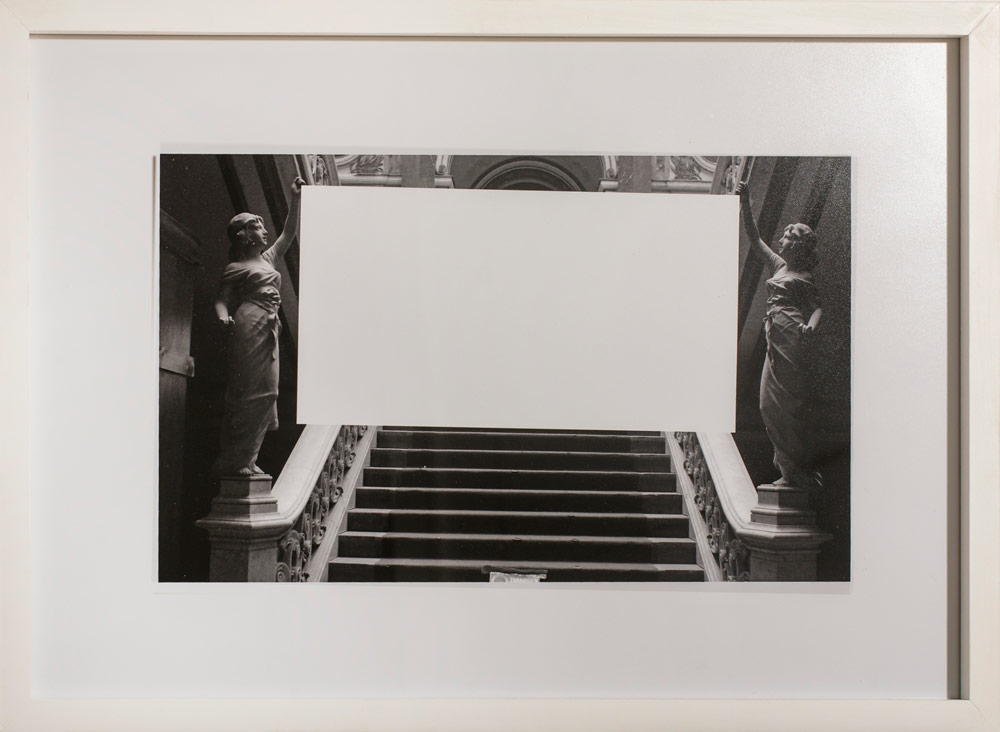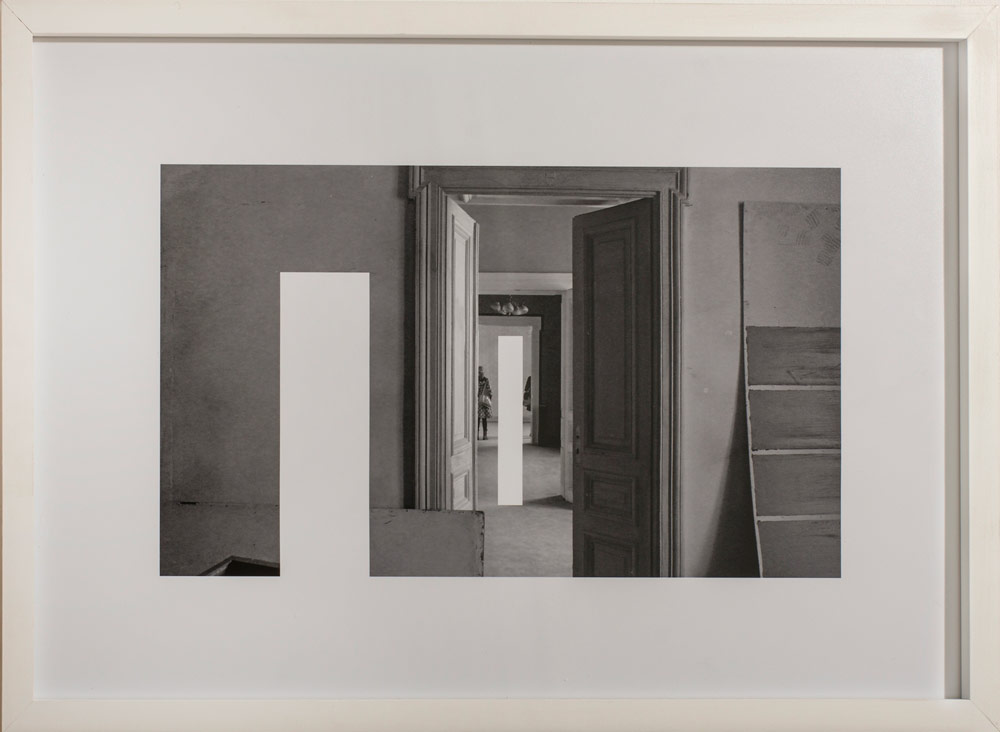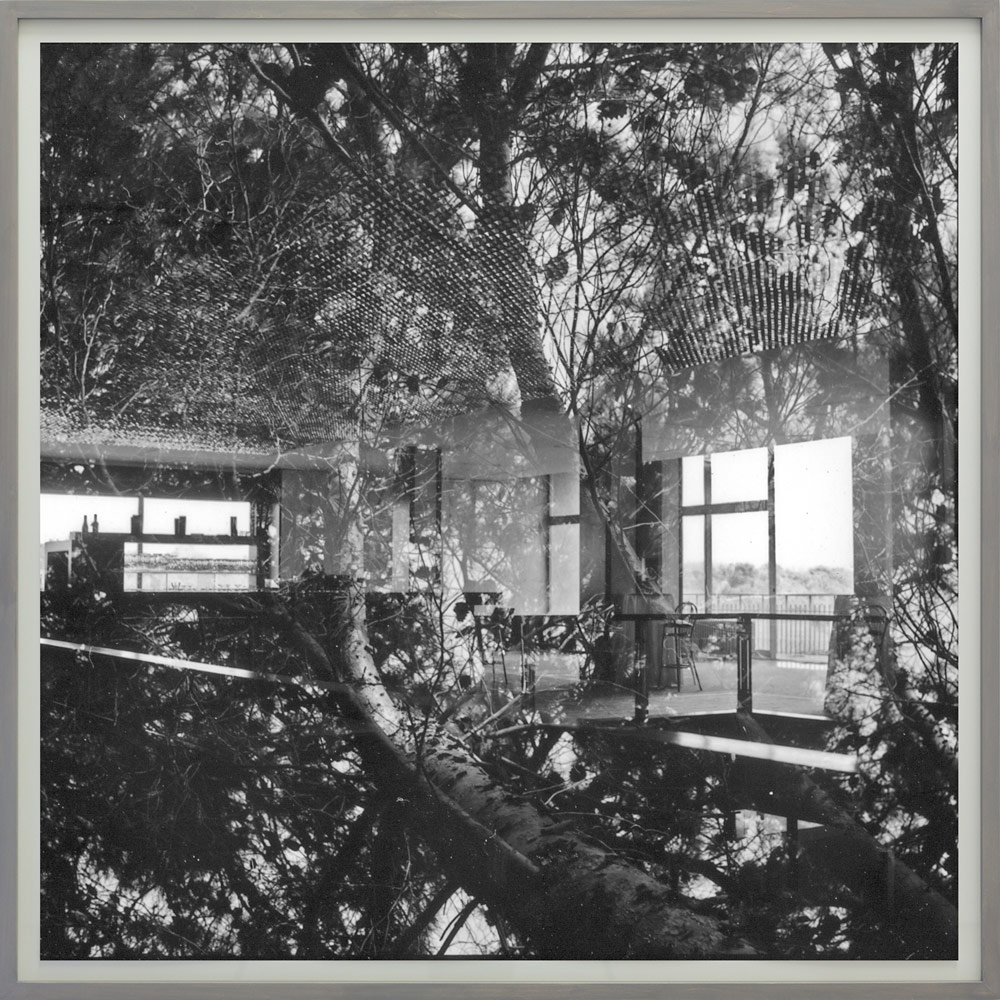MLADEN BIZUMIĆ (1976)
In Transition #3
black and white photograph on baryta paper
20 cm x 34 cm
2012
In Transition #7
black-and-white photograph on baryta paper
20 cm x 34 cm
2012
Hotel Yugoslavia (Double Exposure)
black and white photograph on baryta paper
100 cm x 100 cm
2010
In Transition #3
black and white photograph on baryta paper
20 cm x 34 cm
2012
In Transition #7
black-and-white photograph on baryta paper
20 cm x 34 cm
2012
The In Transition series was made as a site-specific work within the 53rd October Salon (Good Life, 2012). The interior shown in the photographs is the space of the Geozavod building, where the exhibition was held. The artist makes arrangements that look like scenes in anticipation of an event that is yet to happen. He sets precise and playful empty spaces, changes in which there is a constant tension between expectation/anticipation of events, contents and contexts.
The Geozavod building was the central venue of the 53rd October Salon and an inducement for the participating artists to create a work for the occasion. Through the complexity of the history and development of the building, all socio-political relations of particular periods were apparent. The photographs taken in it and the way they were presented (in the found cabinets – the abandoned inventory of previous occupants of the building space) open new points of perception in exploring people’s relationship towards their surroundings.
© Cultural Centre of Belgrade, October Salon Collection and the artist
Gift Contract: III-5-289/1/24.9.2014.
Inventory No. 1350
Photo: Courtesy of the artist, Milan Kralj
Selected Bibliography:
53rd October Salon, Good Life: Physical Narratives and Spatial Imaginations. Cultural Centre of Belgrade, 2012
Hotel Yugoslavia (Double Exposure)
black and white photograph on baryta paper
100 cm x 100 cm
2010
The photograph Hotel Yugoslavia (Double Exposure) was part of the site-specific project created during the artist’s exploration of the hotel building and its relationship to the immediate environment. The photograph Double Exposure (as well as other photographic and video works in this series) with the evident distortion of the “picture”, accomplished by re-illuminating the analogue film, points to the fragility of space and its dependence on the relation of consciousness and feeling.
As one of the first planned representative buildings in the new modern city that was emerging on the territory of today’s Novi Beograd after 1948, Hotel Yugoslavia served as a starting point when it comes to the artist’s interest in the modernist heritage in the former Yugoslavia. Namely, from the first crisis the hotel experienced in the 1980s, through the extensive damage during the NATO bombing of Belgrade in the 1990s, to the privatization in the 2000s, this representative building was left to gradually decline. Bizumić starts from his own perception of the current condition of the hotel by analysing the potential of this building, as well as the potential of the entire modernist heritage. Hotel Yugoslavia is presented as a ruin, but also as a space for a possible reaffirmation of social consciousness.
© Cultural Centre of Belgrade, October Salon Collection and the artist
Purchase Contract: III-5-516/24.12.2014.
Inventory No. 1389
Photo: Courtesy of the artist
Selected Bibliography:
Mladen Bizumić Hotel Yugoslavia, Mar. 29 – May 6, 2012, catalogue for the exhibition at the Salon of the Museum of Contemporary Art, Belgrade, 2012
Daniel Horn, “Mladen Bizumić: Salon of the Museum of Contemporary Art Belgrade”, FRIEZE, No. 149, September 2012, 174
ABOUT THE AUTHOR:
Mladen Bizumić (1976, Sremska Mitrovica, Serbia) graduated from the Auckland Academy of Fine Arts and completed his doctoral studies at the Faculty of Fine Arts in Vienna. He works in various media; his descriptions (presentations) often look like scenes in anticipation of an event that is yet to occur, causing tension between the works and their presentation, content and context. He has exhibited at numerous major international exhibitions such as the 9th Lyon Biennale, 10th Istanbul Biennale, 3rd Vienna Biennale, 2nd Moscow Biennale, 1st Auckland Triennial, etc. He lives and works in Vienna (Austria) and Auckland (New Zealand). More information at www.mladenbizumic.net


